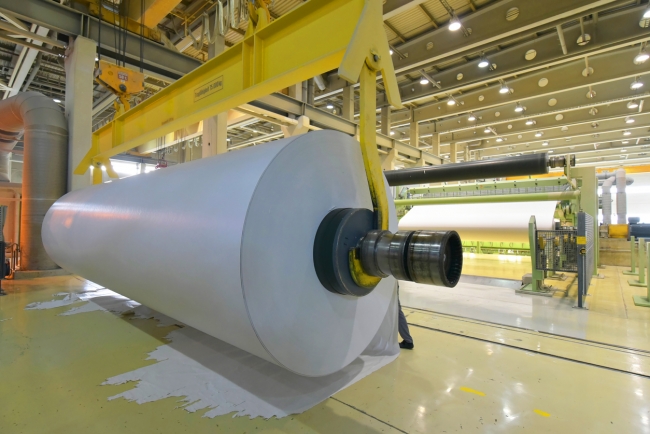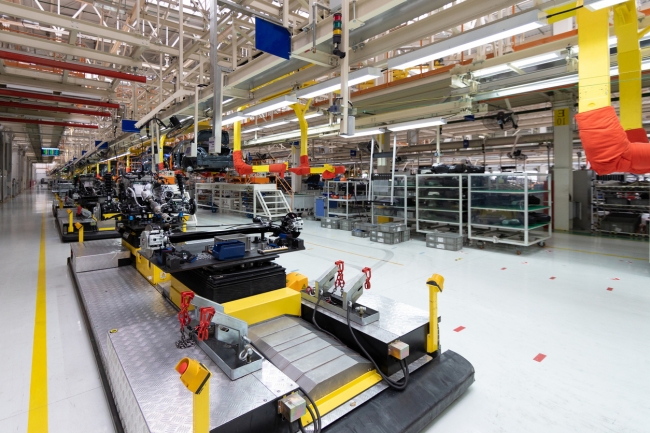4 minute read
Record output growth for UK manufacturers continues according to latest Industrial Trends Survey
UK manufacturing output volumes grew at the joint-fastest pace on record in the three months to July, according to the latest quarterly CBI Industrial Trends Survey.
The survey of 250 manufacturing businesses reported output increasing in 16 out of 17 sub-sectors, led by the motor vehicles & transport equipment and food, drink & tobacco sub-sectors. Manufacturers expect output to grow at an even quicker pace in the next three months – the strongest growth expectations on record. Furthermore, total new orders grew at their quickest pace since 1974. This reflected domestic orders expanding at their fastest rate on record (since 1975), and the first rise in export orders since January 2019.
Meanwhile, numbers employed in the sector grew at their fastest pace since 1973, and are expected to increase at a slightly faster rate in the next three months. Business optimism growth remained strong by historical standards, despite slowing from last quarter. The outlook further ahead is also more positive, with investment intentions for plant & machinery and training & retraining improving to their strongest since 1988 and 2015, respectively.

The latest Industrial Trends Survey shows that record output growth is continuing for UK manufacturers but supply chain challenges continue to loom / Picture: Getty/iStock
However, concerns about the availability of materials/components, skilled labour, and plant capacity as factors likely to limit output next quarter were at their most heightened since the mid-1970s.
The manufacturing sector also continues to face acute cost pressures. Firms reported that average costs growth in the three months to July accelerated to its fastest pace since 1980. These cost pressures have fed into quicker output price growth, with average domestic and export prices in the last quarter increasing at the fastest rates since 1980 and 2017, respectively.
Looking ahead to the next three months, costs growth is set to ease somewhat (but remain high by historical standards), while domestic output price inflation is anticipated to accelerate further. In contrast, growth in export prices is expected to slow.
Rain Newton-Smith, CBI chief economist, said: “Record growth in manufacturing output volumes is further evidence that UK industry is reawakening following the economic ravages of the pandemic. Demand is rising rapidly, leading businesses to hire more staff and plan further investment in plant & machinery and training. Encouragingly, manufacturers expect further record output growth in the coming quarter.
“Yet other challenges lie ahead. Acute staff shortages evident across the economy are biting deeply within manufacturing, with skills in short supply and the number of people isolating climbing steeply. Businesses have already endured a prolonged period of inhibited demand, so it is vital that government now takes all possible steps to protect this resurgence in activity.
“In the short-term, that should mean an immediate rethink on self-isolation rules. A test-and-release system which enables healthy people to return to work would help, as would freeing double-jabbed people from isolation obligations. This would ensure manufacturers can operate at full capacity, and work towards capitalising on a swift recovery.”

Output volumes, business optimism and investment intentions all remain strong / Picture: Getty/iStock
Tom Crotty, group director at INEOS and chair of the CBI Manufacturing Council, added: “It has been a strong summer for the UK’s manufacturing sector, with orders and output performing well. It is also very welcome to see firms planning on investing more in their longer-term productivity through spending on skills and machinery.
“However, it is not all positive news for the sector; many firms are grappling with staff shortages and facing difficulty accessing materials, all of which is putting a huge strain on operations. It will be essential for the government to work with manufacturers to address these challenges if the sector’s strong performance is to continue.”
Highlights from the latest quarterly Industrial Trends Survey:
Output
• Output volumes in the three months to July grew at the joint-fastest pace on record (+37% from +37% in June – record since 1995).
• Output increased in 16 out of 17 sub-sectors, with headline growth being driven by the motor vehicles & transport equipment, and food, drink & tobacco sub-sectors.
• Manufacturers expect output growth to accelerate further next quarter (+44%), marking the strongest expectations for growth on record.
Orders
• Total new orders in the quarter to July grew at their quickest pace since January 1974 (+48% from +5% in April).
• Domestic orders (+42%) expanded at the fastest pace on record (since April 1975), while export orders growth (+12%) stood at its quickest since July 2018.
• Manufacturers expect total new orders growth to ease next quarter (+29%).
Headcount
• Numbers employed in the quarter to July (+24% from +10% in April) grew at their quickest rate since October 1973. Headcounts are expected to increase at a slightly faster pace next quarter (+28%).
Investment intentions
• Investment intentions for the next 12 months (compared with the previous 12) improved for plant & machinery (strongest since April 1988) and training & retraining (strongest since January 2015).